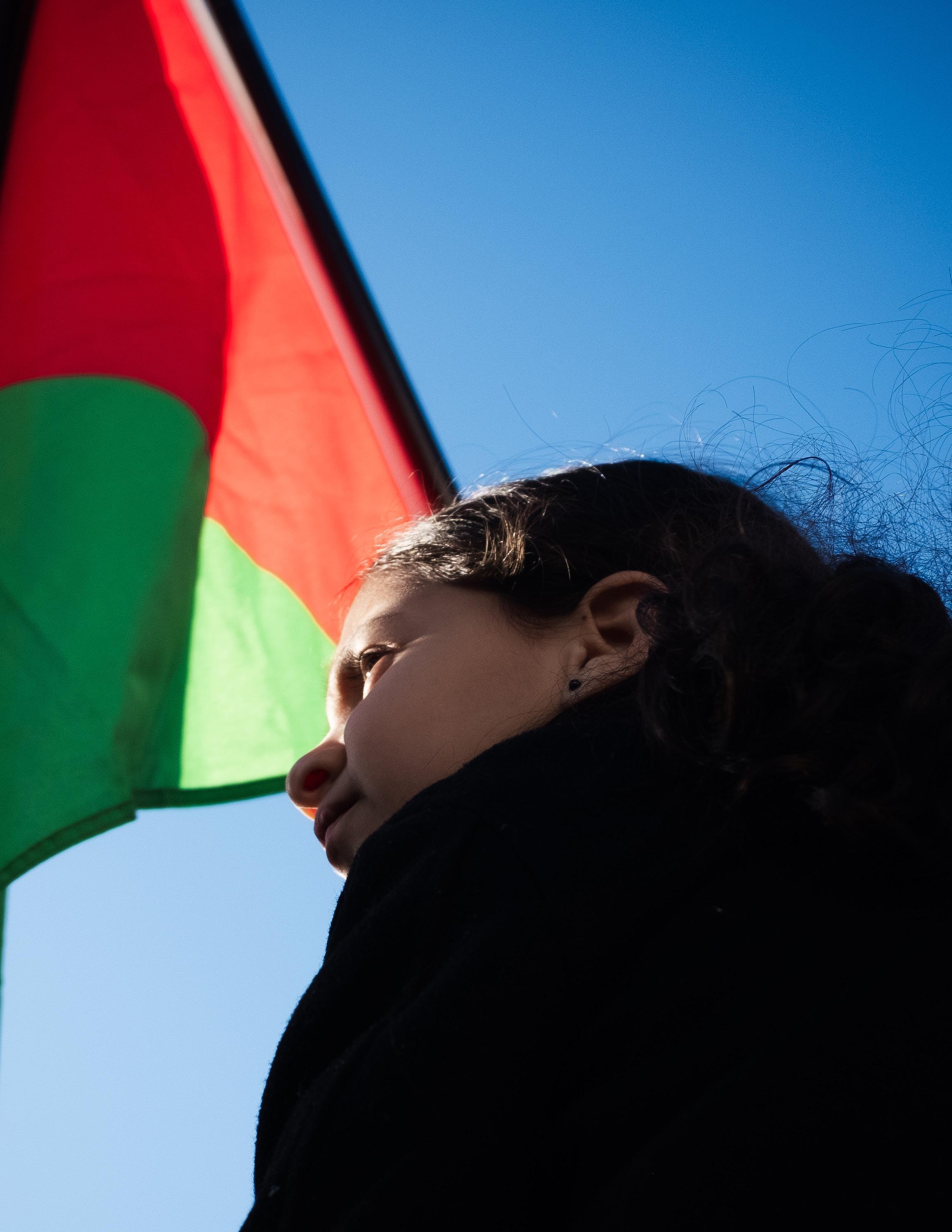

canada - palestine SCORECARD 2024
Gaza has spent the last 15 months under attack.
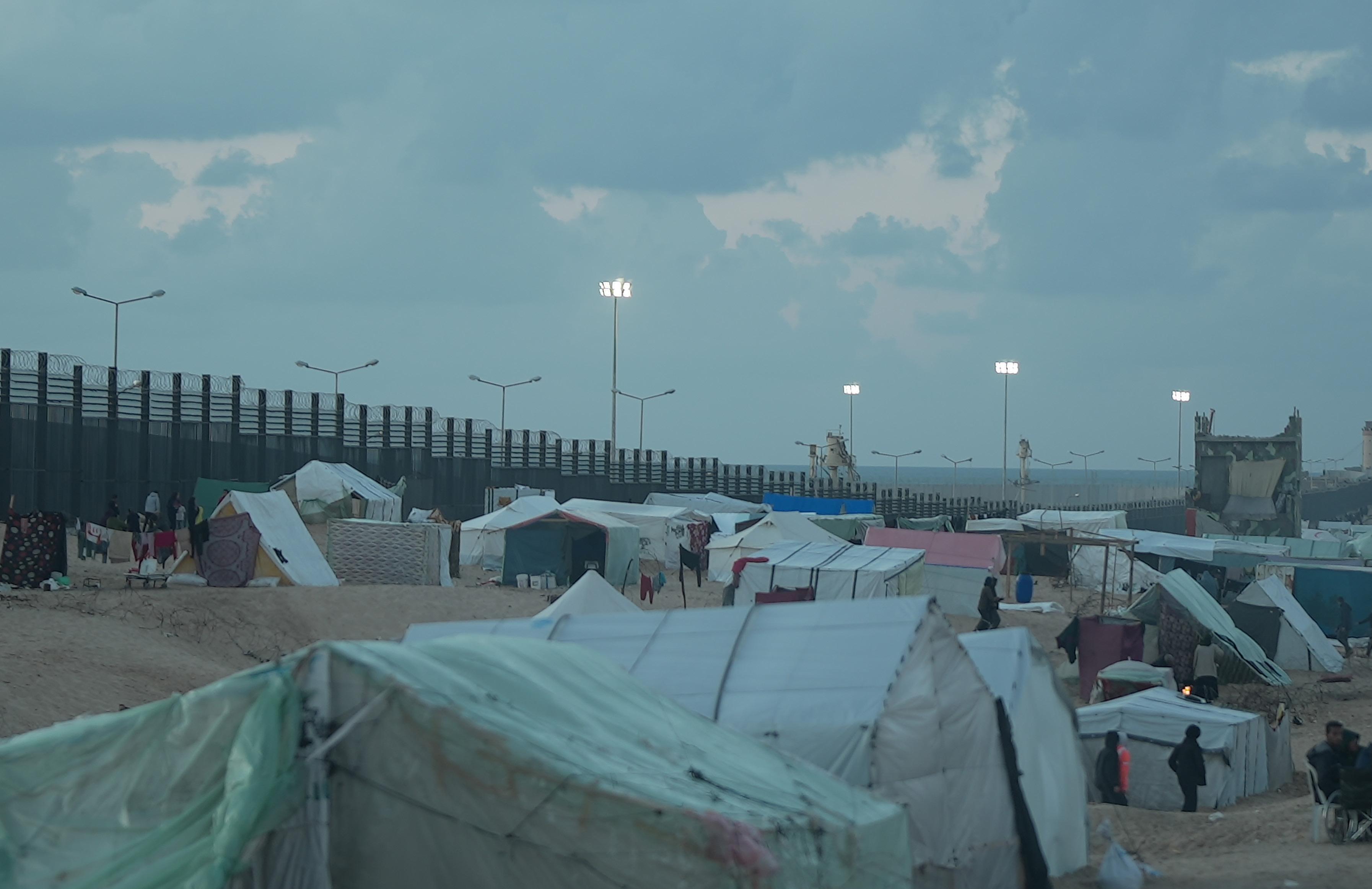
Gaza has spent the last 15 months under attack.
The Israeli military campaign has left at least 46,000 dead, tens of thousands missing, more than 100,000 wounded and led to the displacement of 90% of Palestinians in Gaza.
Canada has been calling for a ceasefire since December 2023. As a pause in hostilities seems within reach, much remains to be done. For more than a year, a little over two million people have been collectively punished suffering from the deliberate and systematic blocking of aid by the Israeli authorities, relentless bombardment and survived
in inhumane conditions. To truly support the end of hostilities, to end the humanitarian catastrophe unfolding in Gaza (but also in the West Bank and Lebanon), and in accordance with its obligations under international law, Canada must do everything in its power to prevent a resumption of hostilities.
This document provides an overview of what Canada has done, or failed to do, to address the horrific situation in Gaza, and provides recommendations for actions in support of a permanent ceasefire.
Photo: Alef Multimedia/Oxfam
Weapons transfers
Context
Between October and December 2023, while 30,000 Palestinians were being killed in Gaza, Canada approved $28.5M worth of arms exports to Israel, more than the annual total of any year in the previous thirty years.
Since October 2023, over 46,000 Palestinians have been killed, but recent reports estimate that the actual death toll might be significantly higher due to hunger, illnesses and living conditions. More than 100,000 people have been injured. As of December 9, 2024, 343 aid workers have been killed. More than 10,000 people are presumed to be under the rubble. 90% of the population is internally displaced. 87% of schools have been hit or damaged. All wastewater treatment systems are non-operational.
66% of all structures in Gaza have either been damaged or destroyed. More than 42 million tons of rubble are now present in the Strip, with the large concentration of explosive hazards posing an imminent threat to civilians who have been forcibly displaced repeatedly, surviving amid rubble and sheltering in unsafe locations. 1.2 million people are unprepared for winter conditions in Gaza, and more than half a million people are sheltering on sites prone to flooding.
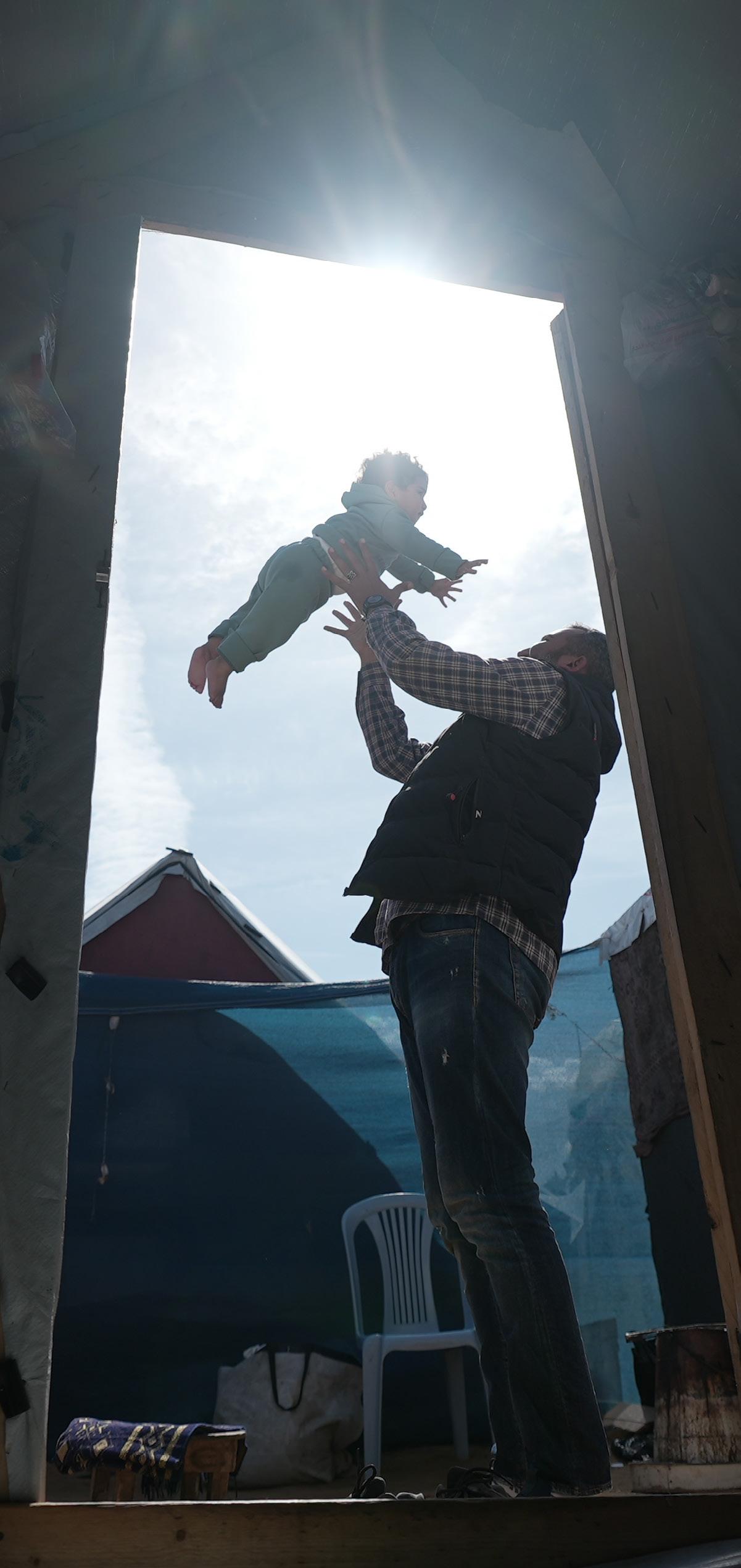
What Canada did or failed to do
In January 2024, Canada suspended approving new military export permits to Israel.
On March 18, 2024, the House of Commons passed a non-binding motion to “cease the further authorization and transfer of arms exports to Israel to ensure compliance with Canada’s arms export regime.”
In September 2024, the government suspended about 30 existing permits for weapons to Israel.
In September 2024, after the US announced plans to obtain 50,000 high explosive mortar cartridges from Quebec-based company General Dynamics for the Israeli military, Foreign Affairs Minister Mélanie Joly said: “We will not have any form of arms or parts of arms be sent to Gaza. Period.”
By specifying only “Gaza,” the possibility remains that Canadian-made weapons are used in Lebanon and the West Bank.
No suspension decision has so far been published, or officially communicated to Canadian arms exporters. Canadians have no evidence arms transfers are actually being suspended.
By contrast, Global Affairs Canada’s website publishes the prohibition on any arms exports to Russia as part of sanctions flowing from Russia’s military aggression on Ukraine.
What Canada could and should do
Immediately halt all weapons, parts and ammunition transfers to Israel, in line with Canada’s support for a ceasefire, its obligations under the Genocide Convention in light of the risk of genocide (as per the International Court of Justice’s (ICJ) interim ruling) and its international arms control commitments. All UN human rights experts are calling on States and manufacturers to cease arms sales to Israel.
Publish the revocation of all active permits and put in place measures to prevent components (particularly of F-35 fighter jets) manufactured in Canada from reaching Israel through the United States.
Amend the Export and Import Permits Act to close the US loophole by requiring permits for exports to the US and include proper end use assurances.
Photo: Alef Multimedia/Oxfam
Restrictives measures
Context
Israel’s atrocities in Gaza, including the deliberate and indiscriminate attacks on civilians, the forced displacements, the deprivation, the killing of humanitarian workers, as well as the weaponization of water and aid, amount to war crimes and crimes against humanity according to Human Rights Watch. The ICJ also found that Israel’s actions amount to a risk of genocide in a January 2024 interim ruling.
In the West Bank, at least 700 Palestinians have been killed since October 7, 2023—the highest number in more than two decades—and 4,555 displaced.
Extremist settler violence against Palestinian civilians and their property in settlements across the West Bank (and formerly, Gaza) has long been
a source of conflict and abuse. The number of settler attacks has risen every year since 2020 and peaked after October 7, 2023, with 4 attacks per day on average in the West Bank since then. These attacks have included killings, physical and verbal assaults, damages to private property and destruction of farming lands and have caused the forced displacement of Palestinian communities.
Beyond settler violence, Israel’s policies and its practices in the occupied Palestinian territory (OPT) violate international law, as confirmed by the ICJ’s July 2024 advisory opinion. The UN High Commissioner for Human Rights also said that the creation and expansion of settlements by Israel amounted to war crimes.
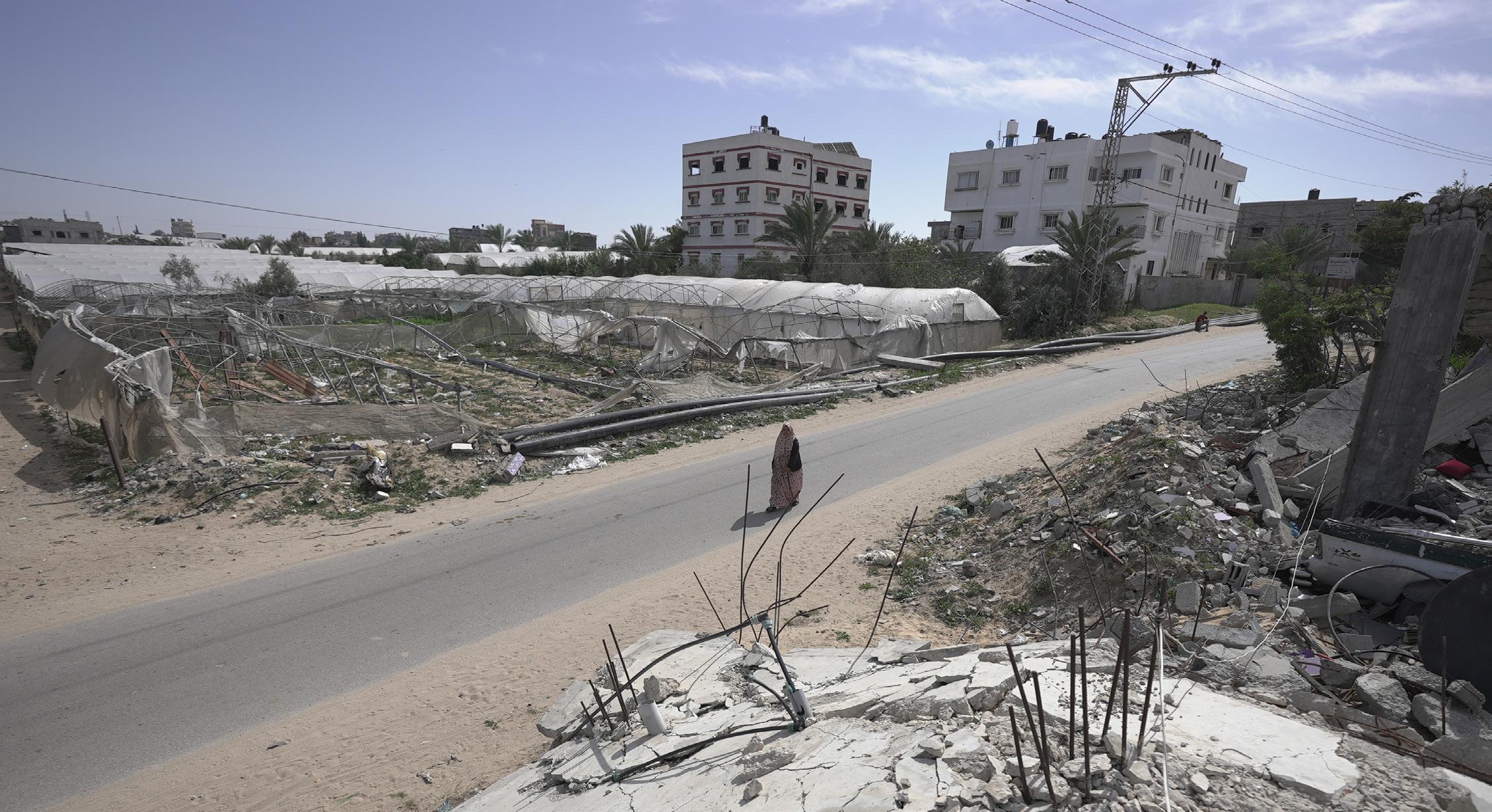
What Canada did or failed to do
On May 16, 2024, Canada ordered sanctions related to extremist settler violence under the Special Economic Measures Act. These sanctions initially targeted 4 settlers engaged in violent acts. They were later expanded and now target 15 settlers and 7 entities.
No restrictive measures have so far been consideredagainstmembersofthegovernment of Israel or the Israeli Defense Forces – as per the recent ICJ Advisory Opinion – for their responsibility in atrocity crimes committed in Gaza, for maintaining the illegal occupation of the West Bank, Gaza and East Jerusalem, and for their sanctionable actions on settler violence. Canada has previously applied sanctions against leaders of governments for their breaches of international law, including Russia for its conduct in Ukraine, and Myanmar.
What Canada could and should do
Use robust diplomatic measures in line with ICJ’s July 2024 advisory opinion and tools to pressure Israel to protect civilians and civilian infrastructure in the OPT as well as to end its illegal occupation, as per the General Assembly’s September 2024 resolution (GA/12626).
Revise relevant economic agreements, in line with the ICJ’s July 2024 advisory opinion, to ensure they exclude products and services from illegal settlements.
Adopt measures to deter Canadian trade and investment in the settlements, in line with Canada’s official position against settlements (see below).
Photo: Alef Multimedia/Oxfam
Humanitarian assistance
Context
On October 9, 2023, a total siege was applied to the Gaza Strip by the Israeli authorities. Fuel, food, water and medicine supply lines were cut. In the weeks that followed, intensive bombing by Israel destroyed half of Gaza’s housing, damaged hospitals and schools, and displaced half the population several times into overcrowded and improperly equipped shelters.
Before October 7, 2023, 500 trucks entered Gaza every day to respond to the population’s basic needs. In October 2024, this daily average fell to 37 trucks (barely 8%).
Gaza is the most difficult and dangerous place in the world to deliver humanitarian assistance. Regular gunpoint detainment and targeting of humanitarian staff has culminated in 343 humanitarian workers killed in Gaza alone as of December 9, 2024.
What Canada did or failed to do
In late October 2023, Canada was among the first donors to announce funding for the emergency response in Gaza, including by matching Canadians’ donations to Humanitarian Coalition member organizations for up to $10M.
On December 12, 2023, Canada called for a ceasefire, as a necessary step to protect civilians. There are no indications that Canada has made arms exports or any other commercial transactions conditional on improved aid access or a ceasefire by Israel, in line with the ICJ’s advisory opinion.
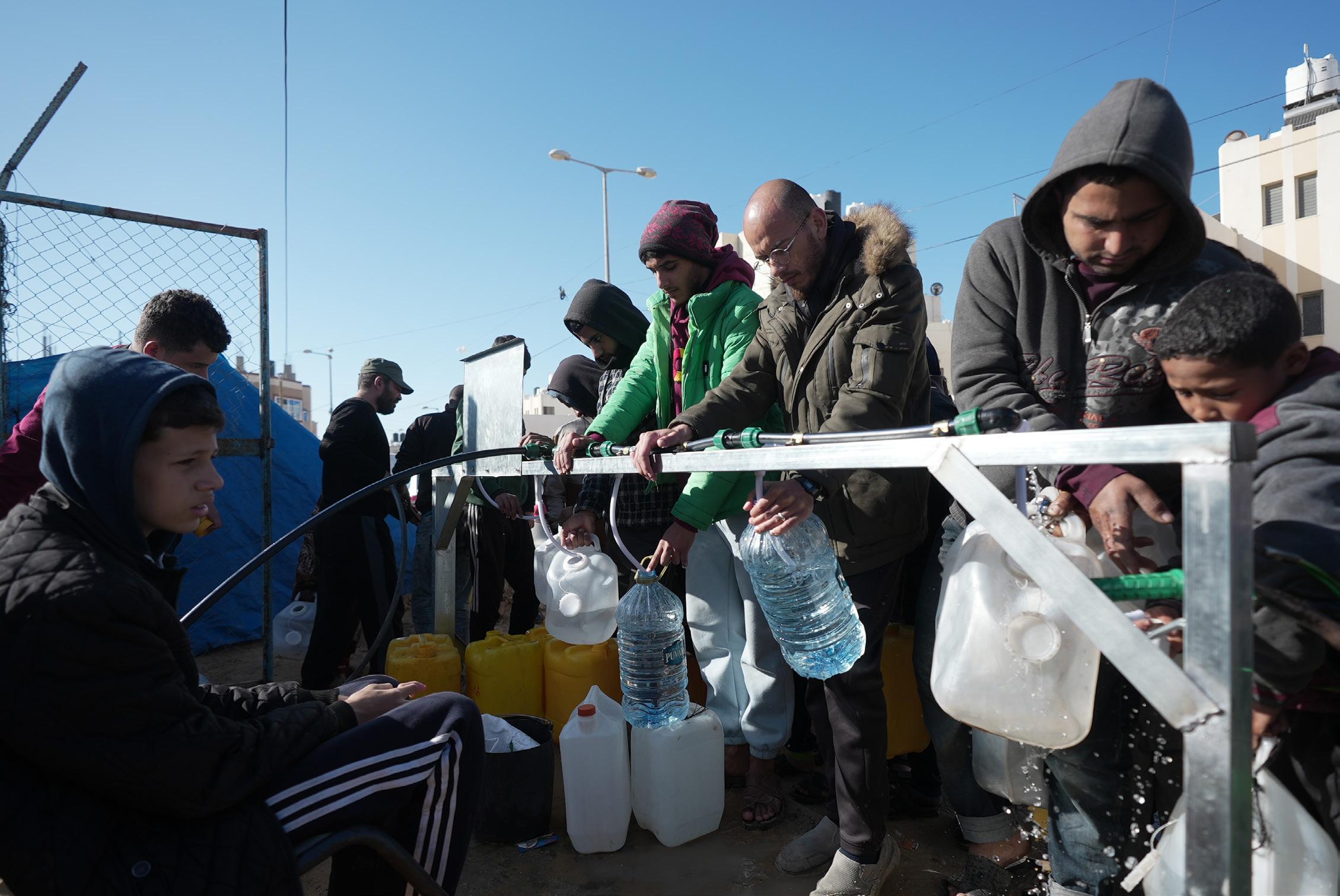
On January 26, 2024, Canada suspended its funding to UNRWA following similar decisions by the United States, the United Kingdom and other donors on the basis of unverified allegations of individual ties to Hamas.
However, on March 8, Canada was among the first donor countries to reinstate funding to UNRWA.
What Canada could and should do
In addition to funding Canadian and multilateral aid agencies, reiterate Israel’s obligations as occupying power to provide for basic needs and facilitate humanitarian access in line with IHL and International Law Obligations.
Apply all diplomatic and economic levers available, as per the ICJ advisory opinion to ensure safe and unfettered access to humanitarian goods, equipment and workers across Gaza and the West Bank.
Photo: Alef Multimedia/Oxfam
International justice
In December 2023, South Africa accused Israel of committing genocide in Gaza in front of the ICJ.
In January 2024, the ICJ’s interim ruling found South Africa’s allegations plausible, and imposed provisional measures in light of the risk of genocide. These measures include preventing destruction of life and forced displacement, as well as ensuring full access to aid in Gaza.
In July 2024, the ICJ also determined that the prolonged (57-year) occupation of the West Bank, East Jerusalem and Gaza by Israel was illegal.
In its advisory opinion, the ICJ stated that Israel was under an obligation to bring the unlawful occupation to an end, cease all new settlement activities and evacuate settlers from the OPT, and make reparation for damages caused to all natural or legal persons concerned.
The finding of illegality also gave rise to international legal responsibility for Third States like Canada not to recognize as legal the situation arising from the unlawful presence of Israel in the OPT, and not to render aid or assistance in maintaining the situation. Aid and assistance include financial, military and political aid or support.
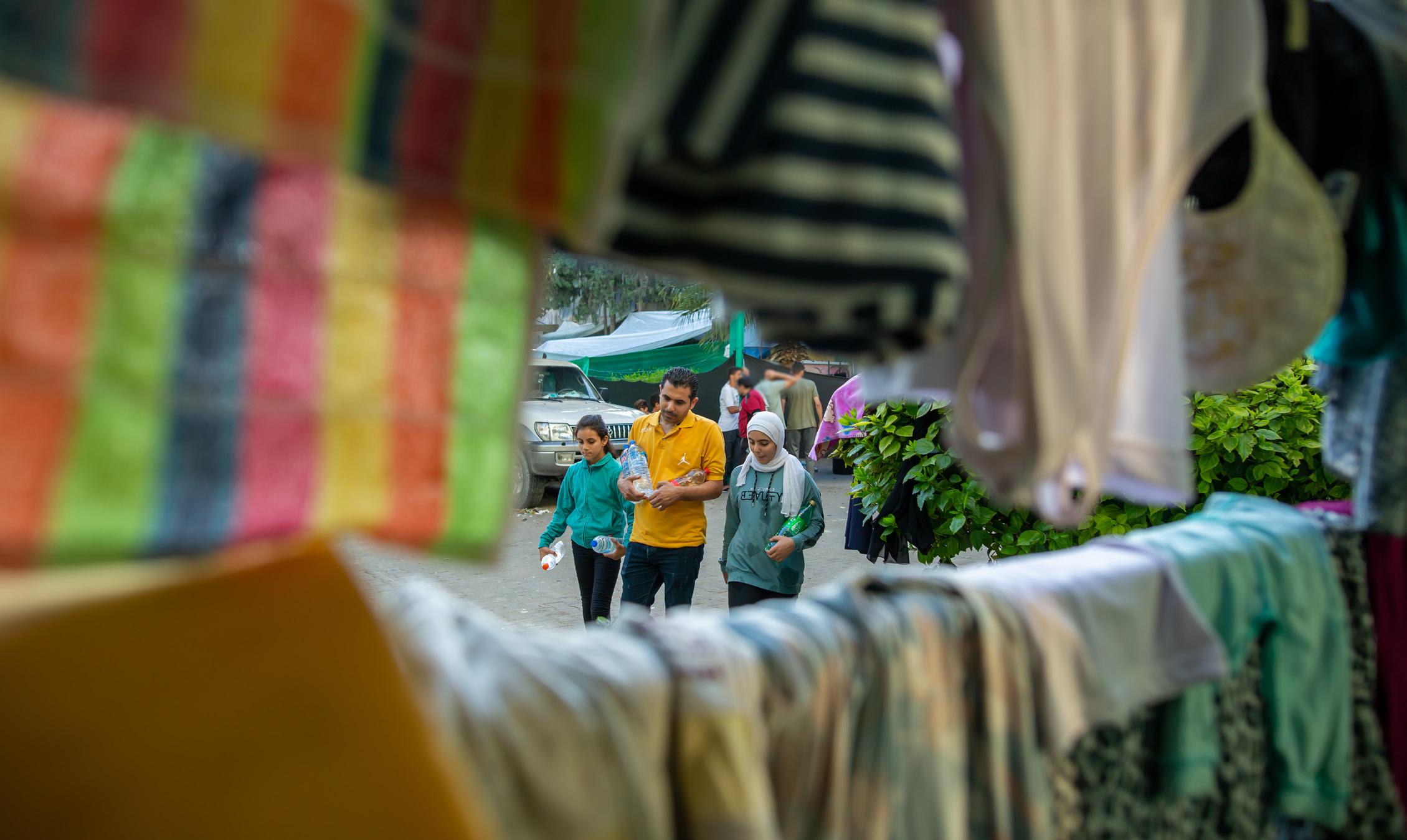
What Canada did or failed to do
In January 2024, Minister Joly only noted that the ICJ “delivered its response,” without expressing support for the ICJ’s interim ruling nor calling on Israel to comply with the legally binding order to prevent genocide against Palestinians, putting Canada out of step with most Western governments.
“Canada’s unwavering support for international law and the ICJ does not mean we accept the premise of the case brought by South Africa. We will follow the proceedings of South Africa’s case at the International Court of Justice very closely.”
In September 2024, Canada was among the few UN members to abstain from voting on the General Assembly resolution that supported the ICJ’s opinion and fleshed out third states’ obligations to stop their support to the illegal occupation, on grounds that focused on “Israel’s right to defend itself from terrorism”.
However, in December 2024, Canada finally voted for two General Assembly resolutions (here and here) that affirm the ICJ advisory opinion.
In May, the Prime Minister vaguely supported the ICJ interim ruling, saying:
«The ICJ’s proposals are binding and we expect everyone to follow them as a matter of international law.»
In July 2024, Canada, Australia and New Zealand called on Israel to respond “substantively” to the ICJ’s advisory opinion, ensure accountability for ongoing acts of violence against Palestinians by extremist settlers, and reverse the record expansion of settlements in the West Bank.
The joint statement condemned Hamas, Iran, Hezbollah and the Houthis for violations, but not Israel.
Canada did not state what concrete measures it would take to uphold its responsibilities as a Third State, as instructed by the ICJ. By contrast, following the ICJ declaring Israel’s occupation illegal, the government of Norway issued an advice to Norwegian companies not to engage in commercial activities that perpetuate the occupation.
What Canada could and should do
Systematically support the ICJ’s decisions publicly and put pressure on Israel to fully comply with the ICJ’s orders.
Take concrete steps to end all forms of complicity and/ or facilitation of Israel’s Gaza campaign given the risk of genocide.
Canada has both a moral and legal obligation to do everything in its power to prevent genocide.
Take concrete steps to end all aid or assistance to Israel’s unlawful occupation of the OPT, as per the ICJ advisory opinion of July 19, 2024. This should include private companies, non-profit or NGOs and ensure that they do not engage in activities that maintain the unlawful occupation, as per the UN Independent International Commission of Inquiry on the Occupied Palestinian Territory, including East Jerusalem, and Israel.
Photo: Alef Multimedia/Oxfam
Asylum
Context
Palestinians in Gaza are blocked from fleeing into neighboring Israel to seek refuge from the hostilities. Egypt’s borders are also closed to most Gaza residents, except for foreign passport holders, the wounded, and some who have paid exorbitant sums to flee. Over a thousand Palestinians with connections to Canada are stranded in Egypt, while thousands more are stuck in Gaza.
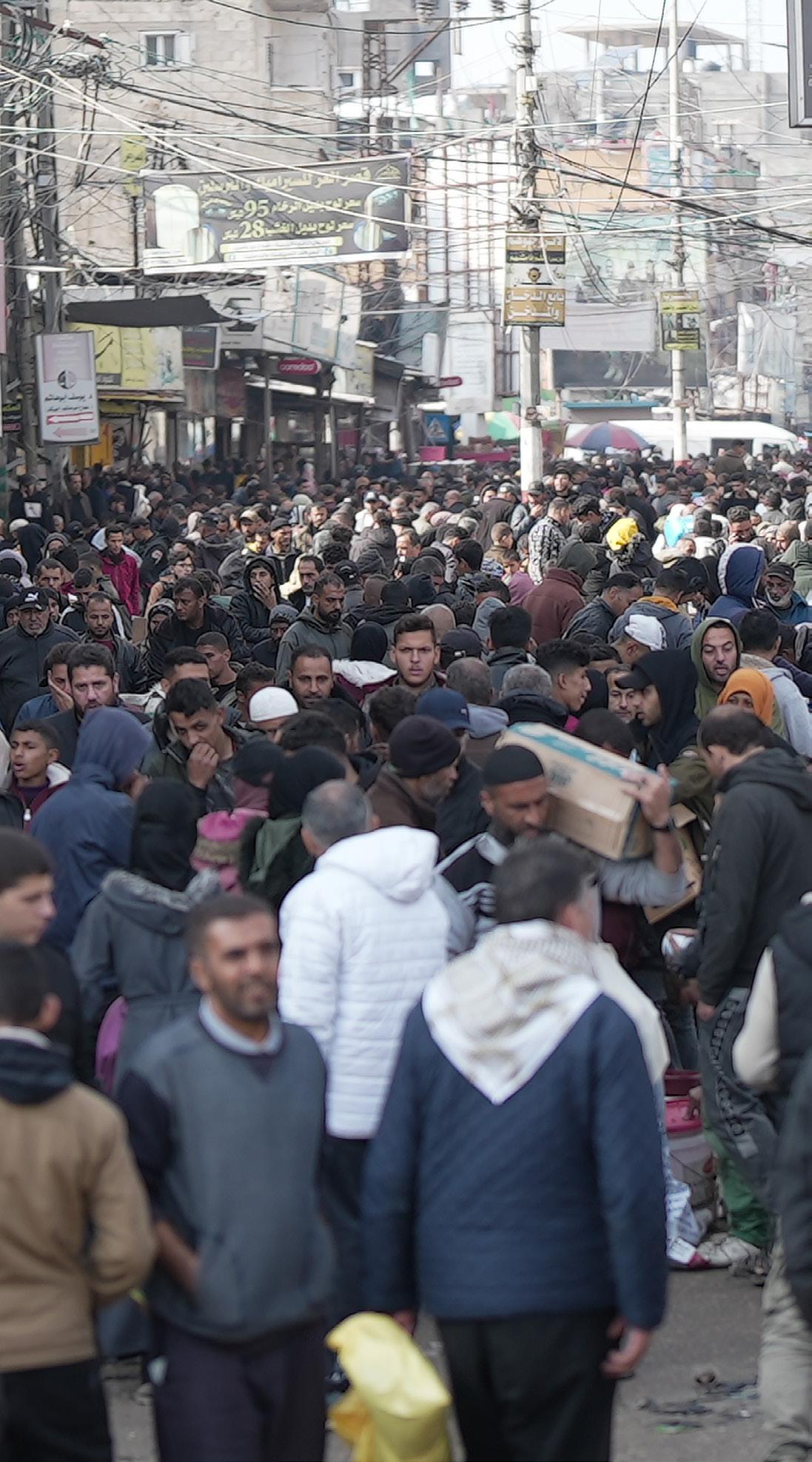
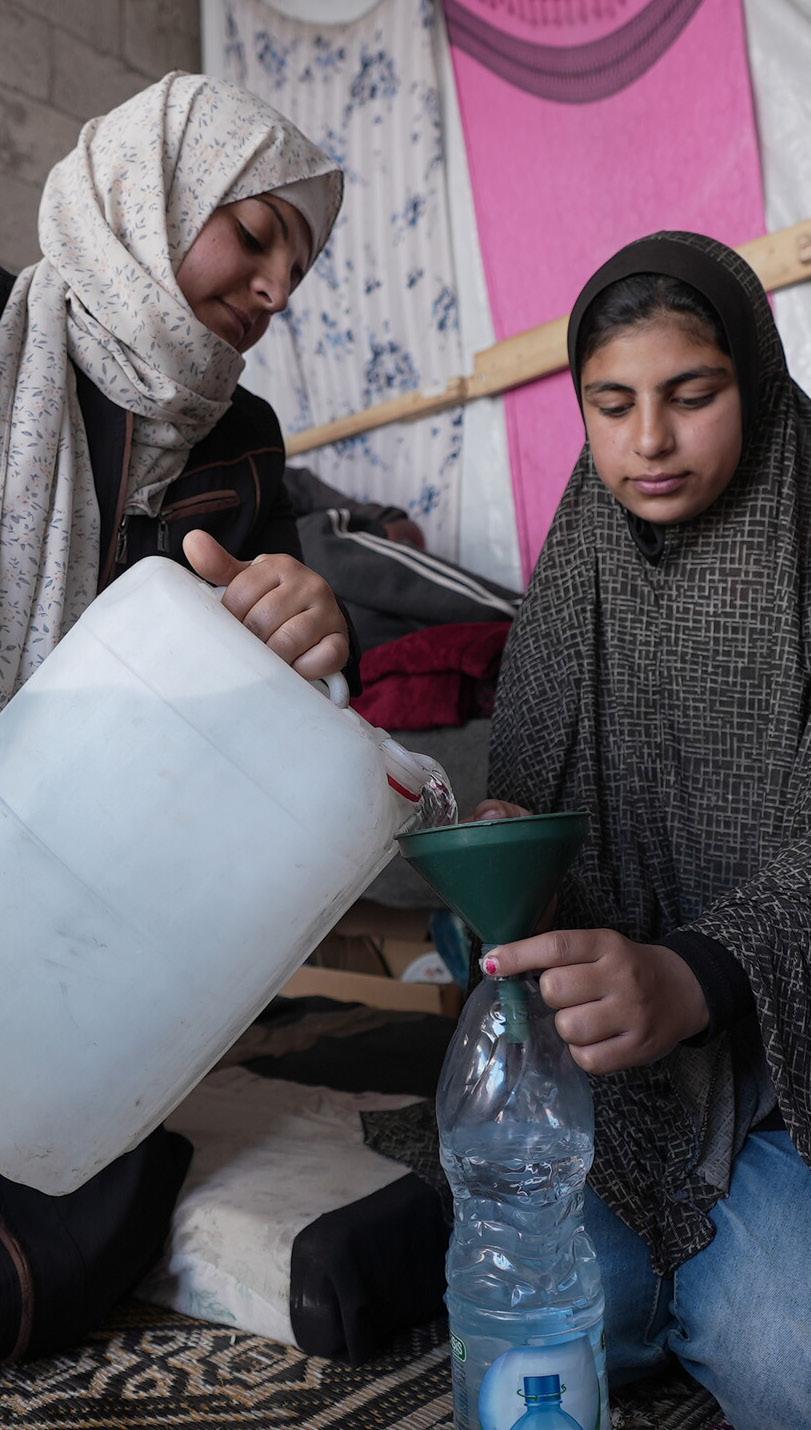
What Canada did or failed to do
In December 2023, Immigration, Refugee, and Citizenship Canada (IRCC) announced the launch of a Temporary Residence Visa (TRV) Program for Gazans with Canadian Family Ties, for the purpose of saving family members of Palestinian Canadians in Gaza.
One year later, it is unclear whether the TRV helped anyone exit Gaza.
The details and roll out of the TRV were deeply problematic. It involved:
1. Unprecedented requirements for personal information.
2. A convoluted application process, and fees and caps imposed that increase inequities.
These barriers display an unacceptable inequity in Canada’s responses to humanitarian emergencies, compared with similar recent programs. For instance, 960,000 Ukrainians affected by war were granted visas (80% of applicants); 733 Palestinians living in Gaza were approved for a visa (17% of applicants); whether any has yet reached Canada remains unclear.
What Canada could and should do
Reform the TRV’s systemic barriers, including waiving biometric requirements, postponing the mandatory medical exam, and providing a single-entry document to people lacking travel documents due to the war.
Provide participants with immediate facilitation for housing, employment, and provincial health coverage.
Photo: Alef Multimedia/Oxfam
Photo: Alef Multimedia/Oxfam
From words to action at the UN
Context
Canada’s official policy on Israel-OPT includes the following:
“Canada recognizes the Palestinian right to selfdetermination and supports the creation of a sovereign, independent, viable, democratic, and territorially contiguous Palestinian state. Canada is prepared to recognize a Palestinian state at the time most conducive to lasting peace, not necessarily as the last step along the path to achieving the two-state solution.”
“Canada does not recognize permanent Israeli control over territories occupied in 1967 (the Golan Heights, the West Bank, East Jerusalem and the Gaza Strip). The Fourth Geneva Convention applies in the occupied territories and establishes Israel’s obligations as an occupying power, in particular with respect to the humane treatment of the inhabitants of the occupied territories. As referred to in UN Security Council Resolutions 446 and 465, Israeli settlements in the occupied territories are a violation of the Fourth Geneva Convention. The settlements also constitute a serious obstacle to achieving a comprehensive, just and lasting peace.”
What Canada did or failed to do
n December 2024, Canada voted at the United Nations General Assembly (UNGA) to condemn Israel’s illegal settlements in OPT, because Israel failed to “respond substantively” to the ICJ advisory opinion on Israel’s continued presence in the West Bank, East Jerusalem, and Gaza.
Canada also supported resolutions which:
• demand an immediate ceasefire and full aid access in Gaza;
• call on Israel to drop its ban on the UN agency for Palestine refugees, UNRWA;
• reaffirm the right of Palestinian refugees to their properties and revenues;
• call for a peaceful settlement of the question of Palestine.
These recent votes mark a welcome turn after Canada’s repeated negative voting and abstentions on these issues for the last 13 years.
From 2011 until 2023, Canada’s voting pattern at the UN General Assembly seemed intended to shield Israel from criticism for its human rights abuses against Palestinians, running counter to Canada’s own official policy on Israel-OPT. With nearly 150 votes against Palestine in the last decade, Canada appears as Israel’s biggest ally after the United States.
In May 2024, Canada abstained from United Nations General Assembly resolution on Admission of new Members to the United Nations (in this case, Palestine) - once again joining a minority of 34 states, while 143 voted in favour.
In November 2024, both the Prime Minister’s and Foreign Affairs Minister’s offices refused to meet with UN Special Rapporteur Francesca Albanese during her visit to Canada. The House of Commons’ Foreign Affairs Committee also canceled her testimony. No other third state has snubbed her to this extent since taking on her mandate in 2022.
What Canada could and should do
Continue to adjust Canada’s voting at the UN General Assembly on resolutions seeking to hold Israel to account so as to bring Canada’s voting in line with its own official policy on Israel - OPT.
Support the mandate and collaborate with UN expert bodies and individuals on Israel - OPT, including the Special Rapporteur on human rights in the OPT, the Independent International Commission of Inquiry, and the Special Committee to Investigate Israeli Practices Affecting the Human Rights of the Palestinian People and Other Arabs of the Occupied Territories.
